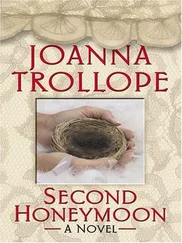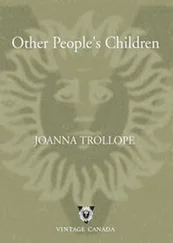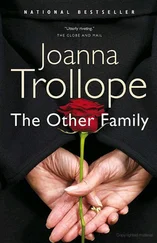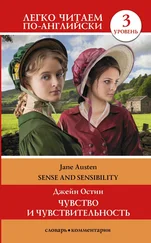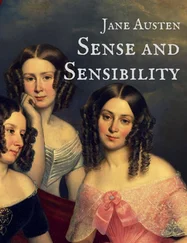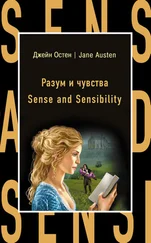Margaret had been fiddling, as usual, with her iPod, disentangling the earpiece flex from the complicated knot she was constantly, absently, tying it in. Now she looked up, as if she had just realised something. ‘I expect,’ she said brightly, ‘that Dad couldn’t leave you anything much because he hadn’t married you, had he?’
Marianne gave a little scream.
‘Don’t say that!’
‘Well, it’s true.’
Belle closed her eyes.
‘ Please …’
Elinor looked at her youngest sister. ‘Just because you know something, Mags, or even think it, doesn’t necessarily mean that you have to say it.’
Margaret shrugged. It was her ‘whatever’ shrug. She and her school friends did it perpetually, and when they were asked not to, they held up their splayed fingers in a ‘w’, to demonstrate the ‘whatever’ shape instead.
Marianne was crying again. She was the only person Elinor had ever encountered who could cry and still look ravishing. Her nose never seemed to swell or redden, and she appeared able just to let huge tears slide slowly down her face in a way that one ex-boyfriend had said wistfully simply made him want to lick them off her jawline.
‘Please don’t,’ Elinor said despairingly.
Marianne said, almost desperately, between sobs, ‘I adore this place …’
Elinor looked about her. The kitchen was not only almost painfully familiar to her, but also represented the essence of their life at Norland, its great size and elegant Georgian proportions rendered welcoming and warm by Belle’s gift for bohemian homemaking, her eye for colour and fabric and the most beguiling degree of shabbiness. That room had seen every family meal, every storm and tantrum, every celebration and party, almost every line of homework. Uncle Henry had spent hours in the patchwork-covered armchair, a whisky tumbler in his hand, egging the girls on to divert and outrage him. Their father had spent as many hours in the carver chair at the head of the huge scrubbed table, drawing and reading and always available for interruption or consolation or diversion. To be without this room, and all its memories and capacities, seemed violently and abruptly unendurable. She said, tensely, to her sister, ‘We all do.’
Marianne gave a wild and theatrical gesture. She cried, ‘I feel as if – as if I’d been born here!’
Elinor repeated, steadily, ‘We all do.’
Marianne clenched both fists and beat them lightly against her collarbone. ‘No, I feel it here . I feel I belong at Norland. I might not be able to play away from Norland. I might never be able to play the guitar—’
‘Course you will!’
‘Darling,’ Belle said, looking at Marianne. Her voice was unsteady. ‘Darling …’
Elinor said wearily, as a precaution to Margaret, ‘Don’t you start too.’
Margaret shrugged again, but she didn’t look tearful. She looked, instead, mildly rebellious; but at thirteen, she often looked like that.
Elinor sighed. She was very tired. She’d been tired for weeks, it seemed, months, tired with the grief of old Uncle Henry dying and then the worse grief, and shock, of Daddy, rushed into hospital after what had at first appeared just a familiar kind of asthma attack, the kind that his blue inhaler usually sorted. But not this time. This time had been terrible, terrifying, seeing him fighting for breath as if someone were holding a pillow over his face, and then the ambulance dash to the hospital, with them all driving behind him, sick with fear, and then a bit of relief in Accident and Emergency, and a bit more in a private room where he could gasp out that he needed John to come, he needed to see his son John, and then after John’s visit, another attack when none of them were there, an attack by himself in that plastic, anonymous room among all the tubes and monitors and heart machines, and the hospital ringing Norland at two in the morning to say that he hadn’t made it, that they couldn’t help his worn-out heart any more, that he was dead.
They’d all convened in the kitchen then, too, after a last necessary, pointless visit to the hospital. In the dawn, all four of them grey with misery and shock and fatigue, had huddled round the table with mugs of tea clasped in their hands, like lifelines. And it was then that Belle had chosen to remind them, using the sort of faraway voice she used when reading fairy tales aloud, how she and Daddy had run away together, away from his first marriage – well, if facing facts, as Elinor preferred to do, his only marriage – and how, after too many struggling and penurious years, Uncle Henry had taken them in. Uncle Henry was, Belle said, an old romantic at heart, an old romantic who had never married because the girl he wanted wouldn’t have him, but who loved to see someone else’s adventure turn out to have a happy ending.
‘He said to me,’ Belle told them, turning her mug slowly in her hands, ‘Norland was so huge and so empty that it reproached him every day. He said he didn’t give tuppence for whether we were married or not. He said marriage was just a silly old convention to keep society tidy. And he told me that he loved seeing people do things he’d never quite had the nerve to do himself.’
Was it nerve, Elinor had thought, trying to comprehend what her mother was saying through the fog of her own shock and sorrow, to live with someone for years and never actually get round to marrying them – or was it carelessness? Was it an adventure not to leave a responsible will that would secure the future of the person you’d had three daughters with – or was it feckless? And was it really romantic to risk being the true beneficiary of a wealthy but deeply conventional old uncle by remaining unmarried – or just plain stupid? Anyway, whatever Dad had done, or not done, would Uncle Henry always have left everything to John in the end, simply because John had had a son and not daughters?
She was still angry with Dad, even now, even though she missed him every hour of every day. No, she wasn’t angry precisely, she was furious. Plain furious. But it had to be a silent fury because Ma couldn’t or wouldn’t hear a word against Dad, any more than she would accept responsibility for never giving a moment’s thought to the possibility of her own future without him. He had been an asthmatic, after all! The blue inhalers were as much a part of the Dashwood family as the members of it were. He was never going to make old bones, and he was living in a place and a manner that was entirely dependent on the charity and whim of an old man who liked his fantasies to be daring but his facts, his realities, to be orthodox.
Of course Belle would not allow for any mistakes having been made, either on her part or on Dad’s. She even insisted for weeks after Dad died, that he and John, his only child and son by that long-ago marriage, had had a death-bed reconciliation in Haywards Heath Hospital, and that they had both wept, and John had promised faithfully that he’d look after his stepmother and the girls.
‘He promised,’ Belle said, over and over, ‘we can stay at Norland for ever. And he’ll keep his word. Of course he will. He’s Daddy’s son, after all.’
And Daddy, Elinor thought, not without a hint of bitterness, is not only safely dead and thus unanswerable, but was perfect. Perfect.
But what had actually happened? Well, what had happened was that they had reckoned without John’s wife, hadn’t they? In the unbearable aftermath of Dad’s death, they had almost forgotten about Fanny. Elinor glanced now across the kitchen to the huge old Welsh dresser, which bore all their everyday mugs and plates, and also holiday postcards from friends and family photographs. There was a framed photograph of Fanny up there, in a girlish white broderie anglaise dress, holding Harry, when he was a baby. Elinor noticed that the photograph had been turned to face the wall, with its back to the room. Despite the distress of the day, Elinor couldn’t help an inward smile. What a brilliant little gesture! Who had done it? Margaret, probably, now sitting at the table with her earphones in and her gaze unfocused. Elinor stretched a foot under the table and gave her sister a little nudge of congratulation.
Читать дальше
Конец ознакомительного отрывка
Купить книгу
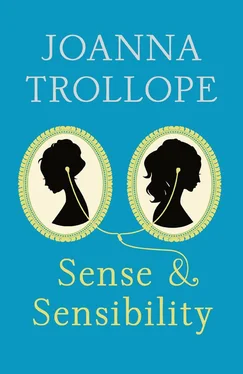
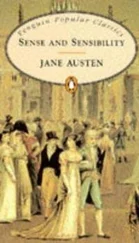
![Джейн Остин - Sense and Sensibility [С англо-русским словарем]](/books/26612/dzhejn-ostin-sense-and-sensibility-s-anglo-thumb.webp)

